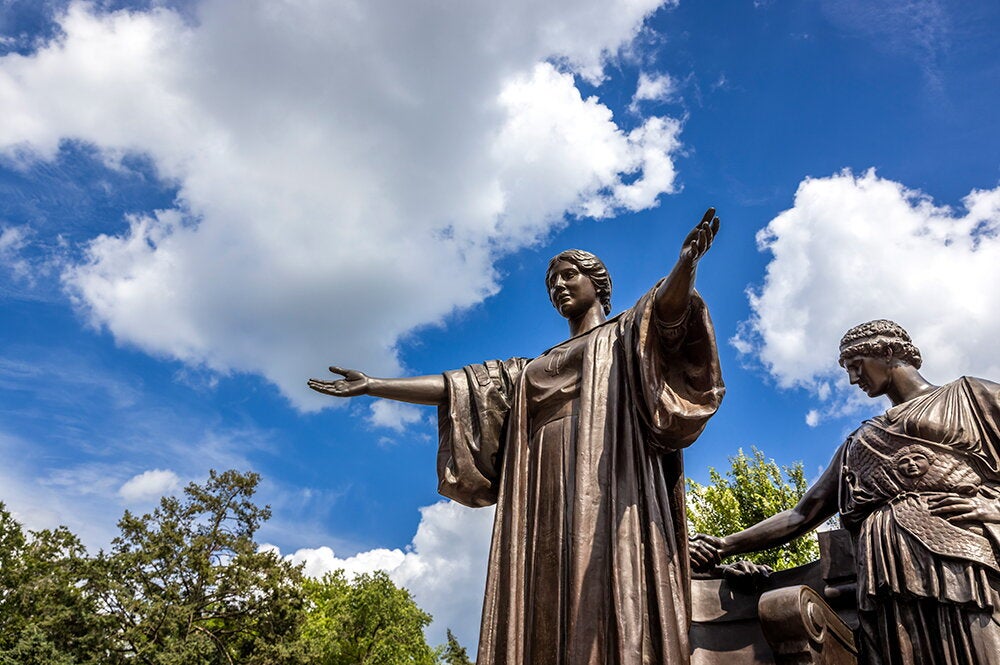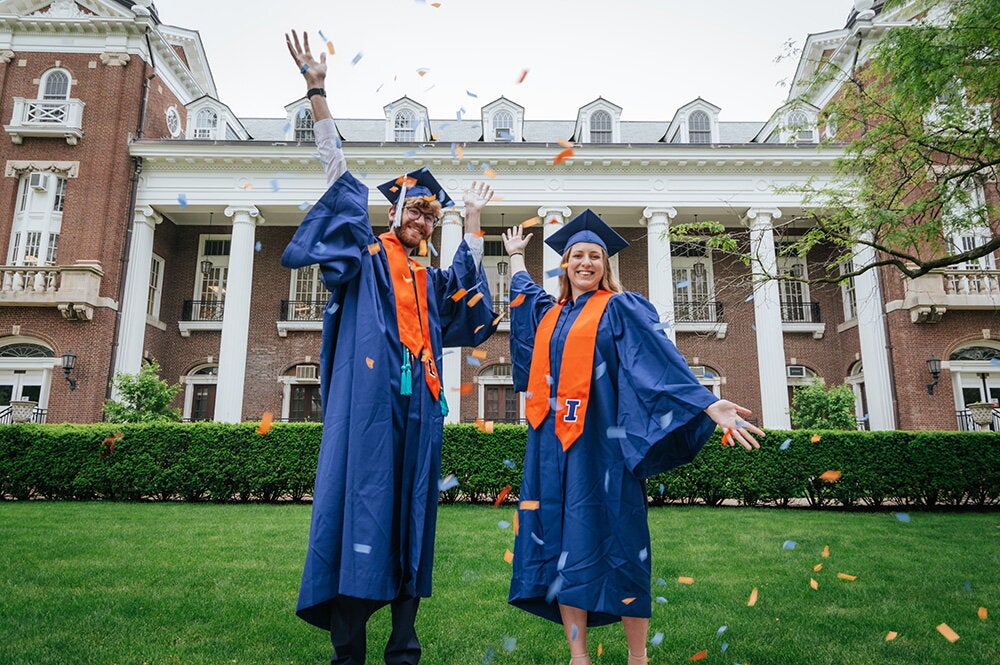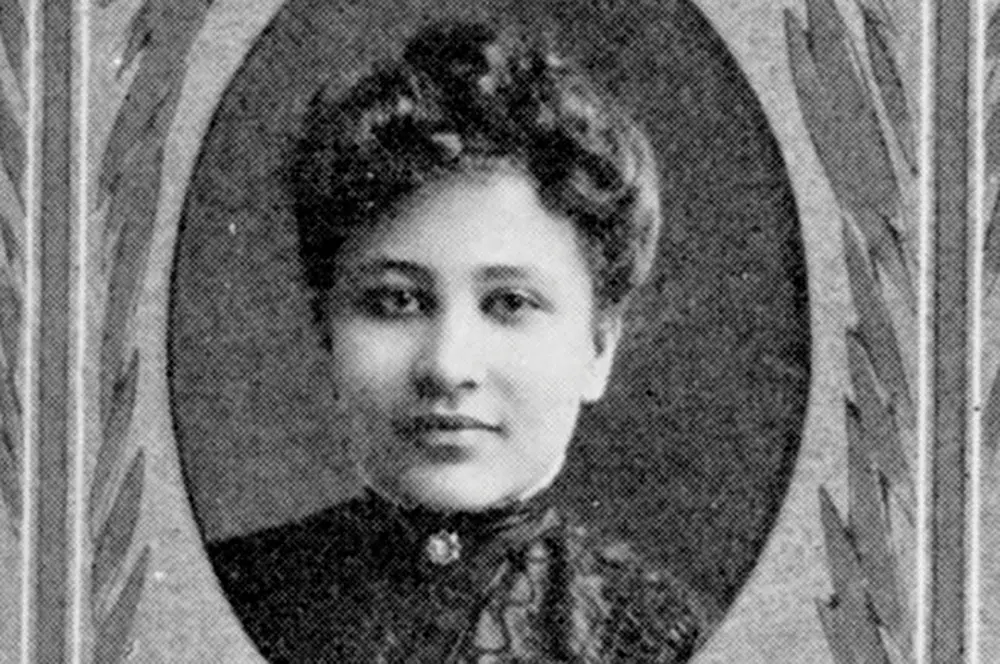
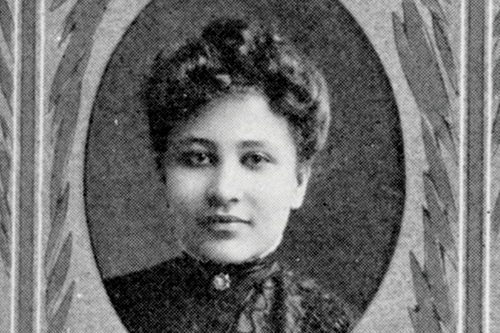
Almost 50 years after her death, Maudelle Tanner Brown Bousfield, the first African-American female student at Illinois, is known as a pioneer. During her lifetime, she learned that the title did not come easily.
In 1926, Bousfield (AB, ’06, mathematics and astronomy) was working at Wendell Phillips High School as the first black teacher to be permanently assigned a teaching position at a Chicago high school. She quickly earned the respect of her colleagues, and the principal asked her to be dean of girls.
The board of education, however, didn’t want Bousfield to fill the position, so they required that she take an examination to qualify. The catch? Five years of teaching experience was required to take the exam, and Bousfield had only four.
Undeterred, Bousfield asked if she’d be eligible for the position if she passed the principal’s examination, which required only four years. The board said yes, but they didn’t believe she would succeed.
“They laughed in my face when I told them I’d take that exam,” Bousfield recalled, according to an historical account by Illinois alumna Dionne Danns (PhD, ’01, educational policy), now a professor at Indiana University. As of that time, only eight African-Americans had taken the principal’s exam, and none had passed. Bousfield, however, scored among the top 20 out of 600 people who took the exam. In 1927, she became the first African- American dean in Chicago schools.
In 1939, she would become principal at Wendell Phillips, and her influence there as principal was cited later, in 2003, when the school was named a Chicago Landmark for its important role in the lives of African-Americans in the city.
Bousfield was born as Maudelle Brown on June 1, 1885, to Charles H. Brown and Arrena Isabella Brown in St. Louis. As a teenager, Bousfield was a musical prodigy, and became the first African-American student to attend the Charles Kunkel Conservatory of Music in St. Louis.
In 1903, Bousfield enrolled at Illinois, where she was determined to succeed despite the uncertainty of being the first African-American woman to attend the school. She soon answered those doubts, excelling in her classes and paying for tuition by tutoring other students in mathematics and playing piano at sorority dances. Bousfield earned her bachelor’s degree in three years and graduated with honors.
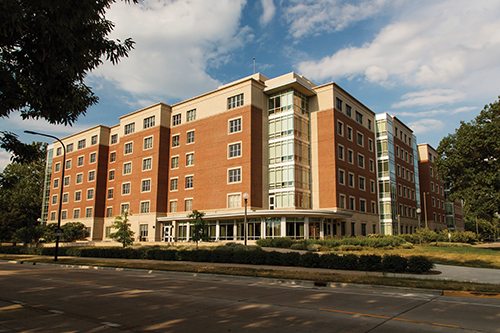
She moved to East Saint Louis, Illinois, to teach high school mathematics, and the job would lead to other teaching positions in Baltimore and eventually Chicago. After being named the dean of girls at Wendell Phillips in Chicago, Bousfield earned her master’s degree at the University of Chicago, where she was particularly interested in studying the ability and achievement of black children. For her master’s thesis, Bousfield tested more than 250 students between fifth grade and eighth grade. She found that while most black children in her study fell below the average scores in reading and arithmetic, refined teaching techniques could enhance their scores.
Indeed, Bousfield fought tirelessly for her students. According to accounts, in 1931, on her very first day as principal of Douglas Elementary School in Chicago, Bousfield noticed that a white teacher was not paying attention to her students. She was letting her students run wild in the classroom. Bousfield had the teacher removed from the school system.
Bousfield expressed strong feelings on the notion of “separate but equal” education, claiming that the school system inherently administered racially biased exams designed to lessen the achievement level of young black students. Bousfield made it a goal to improve the performance of black students in standardized testing.
She also argued that poverty and other environmental factors had adverse effects on test scores for black students and put them at an early disadvantage. This is not to say that she deflected responsibility for her students; Bousfield is remembered for demanding excellence and hard work from her students, who came from some of the city’s toughest districts.
Wilford Bonner, a 1945 graduate of Wendell Phillips, told the Chicago Tribune for a story about the school that Bousfield, who stood about 5 and a half feet tall and wore thin-rimmed glasses, didn’t tolerate misbehavior.
“She was a quiet dictator,” he said.
“When you walked into the school when she was principal, you knew (there was) serious business going on up in here,” Sisi Mosby, a 1949 graduate, told the paper.
Bousfield was also a strong advocate for females, and she came to be regarded as a role model for African American women who wanted to work in public education. In November 1928, Bousfield highlighted many of the things she was thankful for in a piece she wrote for the Chicago Defender titled “Thanksgiving Expressions.”
“I am furthermore thankful that out of my work grows that satisfaction of having been some small service to someone else,” Bousfield said. “I am glad to be a woman and to enjoy the freedom and emancipation that womankind is winning.”
From 1929-1931, Bousfield served as the national president of the Alpha Kappa Alpha sorority, the first African-American women’s sorority in the United States.
In 1965, she became an honorary member of Phi Beta Kappa, a prestigious academic honor society at the University of Illinois. She was honored for her outstanding work when she was a student and in her subsequent career. In retirement, Bousfield enjoyed spending time with her two grandchildren and spent her spare time collecting early American glass and gardening. She was even once recognized by the Chicago Gardening Club.
Bousfield died on Oct. 14, 1971 in Chicago, at age 86.
In the fall of 2013, the University of Illinois opened a residence hall, Bousfield Hall, named in her honor. Members of her family and descendants of hers were present at the opening ceremony. Meanwhile, her portrait still hangs on the wall at Wendell Phillips Academy High School in Chicago.
“Everyone has some gift, some one thing he can do better than anything else, whether it is teaching, dancing, dramatics, cooking, or some other skill,” Bousfield once said. “Find that one thing and give of it to humanity if you want a well-rounded happy life.”
Editor's note: This story originally appeared in the Spring 2019 issue of LAS News magazine.

